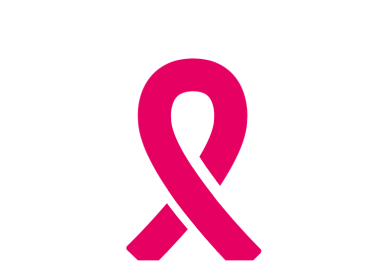STI testing

Sexually transmitted infections (STIs) are infections that can be passed through sexual activity and sometimes during childbirth.
When STIs are treated early, you can prevent many of the negative outcomes of STIs, including infertility in both men and women. Testing and treatment is important for sexually active people and for pregnant women.
We won’t judge you
You might be feeling embarrassed about coming in to see us, but don’t let that stop you seeking help. Our friendly and non-judgemental providers have seen it all before and will put you at ease.
Book an appointment
If you’re ready to visit us, book an appointment to reduce your waiting time at the clinic.
Once you’ve filled out the form, a member of the team will be in touch to confirm your appointment.
Common symptoms of STIs
Many people often don’t notice symptoms when they have an STI.
Left untreated, STIs can affect your health. If you have any of the symptoms listed below, we recommend getting tested as soon as possible.
STI symptoms in women and men:
- Pain when you urinate
- Itching, burning or tingling around the genitals
- Blisters, sores, spots or lumps around the genitals or anus
- Black powder or tiny white dots in your underwear – this could be droppings or eggs from pubic lice.
STI symptoms in women:
- Yellow or green vaginal discharge
- Discharge that smells
- Bleeding between periods or after sex
- Pain during sex
- Lower abdominal pain.
STI symptoms in men:
- Discharge from the penis
- Irritation of the urethra (the tube urine comes out of).
These symptoms may also be because of other reproductive health issues, not just STIs. If you are experiencing any of these symptoms, it is best that you come for a consultation so we can help to identify and treat the problem.
Find a clinic near you
Don’t ignore STI symptoms that are worrying you. Visit a clinic today where our friendly and professional providers will assess and treat you as quickly as possible.
Find out more about the most common STIs
Chlamydia is a bacterial infection that is easily treated. Without treatment it can spread and cause a more serious and painful condition: pelvic inflammatory disease (PID). Around 70% of women who have chlamydia won’t get symptoms. When symptoms do appear they include:
– Heavier vaginal discharge that may contain pus and/or mucus
– Vaginal bleeding after sex or in between periods
– Pain during sex
– Pain when you wee
– Pain or tenderness in your pelvis
If you’re worried that you may have chlamydia, it’s important you get tested and treatment as quickly as possible.
Gonorrhoea is another bacterial infection which doesn’t cause symptoms in about half of women. Like chlamydia, gonorrhea can spread and become more serious if left untreated.
If you do get symptoms, you might notice:
– Thicker vaginal discharge, sometimes turning yellow or greenish
– Pain in your lower tummy, when having sex or when having a wee
– Bleeding between periods
You can get gonorrhoea in your throat through unprotected oral sex. You may not have specific gonorrhoea symptoms, but it can lead to tonsillitis or a sore throat, so get tested if you think gonorrhea could be to blame.
If you’re worried that you may have gonorrhoea, it’s important you get tested and treatment as quickly as possible.
Trichomoniasis is caused by a tiny parasite. Only around half of women will have symptoms, which include:
– Heavier, bad-smelling or frothy vaginal discharge which may be yellowy green and thick or thin
– Ulcers on your vulva and your vulva may be itchy or sore
– Pain in your lower tummy, especially when you wee or have sex
If you’re worried that you may have trichomoniasis, it’s important you get tested and treatment as quickly as possible.
Genital warts are caused by the human papillomavirus (HPV). They look like tiny pieces of cauliflower, either flat or on a small stalk, around your vagina or anus. They’re usually less than a centimetre across, though they can also be too small to see, and they can be white, skin-coloured or red.
Genital warts don’t usually cause any symptoms but if you catch one on your underwear it can bleed or be uncomfortable. They can also affect the flow of your wee if one grows on the tube from your bladder (urethra).
If you’re worried that you may have genital warts, it’s important you get tested and treatment as quickly as possible
Genital herpes is caused by the herpes simplex virus. It causes lots of painful blisters or boils around your vulva, anus, thighs or bottom. These quickly burst to leave red open sores or ulcers.
Other symptoms include:
– Headache, fever and exhaustion
– Pain when you wee
– Lumps in your groin from swollen lymph nodes
– Tingling, burning or itching around your vulva
– Unusual changes in your vaginal discharge
You’ll normally feel better after around three weeks, but it can flare up again in the future. You may feel a tingling or burning sensation a couple of days before the blisters appear. These later flare-ups are usually less severe. Although the blisters can be painful you’re unlikely to get other symptoms again, like fever and feeling worn out.
If you’re worried that you may have genital herpes, it’s important you get tested and treatment as quickly as possible.
Pubic lice, also known as crabs, are blood-sucking parasites which are about 2mm long. They usually get passed on during sex but you can get them from infested bedding, clothing or towels. They look like nits or lice on your pubic hair, although they’re occasionally found on armpit hair or even eyelashes.
Other symptoms include:
– Itching that’s worse at night
– Rust-coloured flecks from their poo
– Small blue spots or red pimples
– Patches of thick, darkened skin if you’ve been itching for a long time.
If you’re worried that you may have public lice, it’s important you get tested and treatment as quickly as possible.
Scabies is caused by a parasite that can be passed through normal touching as well as sex. They’re too tiny to see but cause a rash. Scabies isn’t a serious health problem, but it’s very infectious. It needs to be treated quickly to stop other people getting infected.
Symptoms include:
– Itching that’s worse at night
– Tiny thread-like lines on the skin or your hands and wrists. You might see a small black cyst at the end of each line.
– Red pimples that start between your fingers and spread across your body.
If you’re worried that you may have scabies, it’s important you get tested and treatment as quickly as possible.
Syphilis is a bacterial infection. It can be hard to diagnose because it causes all sorts of different symptoms any time between three weeks and three months from when you became infected.
The first stage of syphilis is known as the primary infection and lasts between three to 10 weeks.
– The main symptom is a painless hard ulcer (chancre) on your vagina or anus
– You may also have swollen glands in your neck, groin or armpits
If you don’t get treatment you may get secondary infection symptoms including:
– A blotchy red rash on the palms of the hands and soles of the feet or small wart-like skin growths around the vulva. This is very common in people who have syphilis
– Fever, tiredness and headache
– Mouth ulcers
If it’s not treated, syphilis can spread to your nervous system, eyes and brain causing life-threatening problems like meningitis and stroke.
Human immunodeficiency virus (HIV) attacks your immune system and eventually leaves you vulnerable to other infections and disease.
Symptoms of HIV usually starts with a flu-like illness between two and six weeks after you were infected. Symptoms can then disappear for years but, if it’s not treated, the infection will continue to damage your immune system. Eventually you become vulnerable to lots of life-threatening illnesses. This stage is known as acquired immune deficiency syndrome (AIDS).
While the virus never completely goes away, a person who has HIV and is on treatment can live a long and healthy life. The earlier treatment is started, the better the chances of success.
If you’re worried that you may have HIV, it’s important you get tested and treatment as quickly as possible.









